
Vojtěch Jasný
Nascimento : 1925-11-30, Kelc, Czechoslovakia [now Czech Republic]
Morte : 2019-11-15
História
Vojtěch Jasný (born 30 November 1925 – 15 November 2019) was a Czech director who came to prominence in the sixties. He won a Cannes Special Jury Prize for Až přijde kocour/The Cassandra Cat (1963). He was born in Kelč in Moravia.
An active filmmaker in Czechoslovakia throughout the 1950s and 1960s, he was among many artists and intellectuals who left the country after the USSR-led invasion following the Prague Spring of 1968. Jasný worked in other European countries for several years including Austria, West Germany and Yugoslavia until relocating to Brooklyn, New York in the early 1980s. Jasný taught film directing classes at Columbia University for several years (where his compatriot Miloš Forman was also a professor and former Film Division Co-Chair) and continues to teach at The School of Visual Arts (SVA) and The New York Film Academy (NYFA).
Až přijde kocour/The Cassandra Cat is an allegorical fable about a magical cat that comes to a small Czech town and causes the underlying nature of the townspeople to be revealed. The film won a Special Jury Prize at Cannes. Also among Jasný's works is Všichni dobří rodáci /All My Good Countrymen (1968), a story centering on the lives and fates of several rural Czechs as they struggle to adapt and survive under communist rule; a film later banned in Czechoslovakia after the invasion of 1968.

Self
An epic exploration of the Czechoslovak New Wave cinema of the 1960s and 70s, structured around a series of conversations with one of its most acclaimed exponents - Closely Observed Trains director Jiří Menzel.

Himself
After being one of the most successful filmmakers in Europe in the sixties, Vojtech Jasny (Czech Republic, 1925) lives in a small apartment in New York. For Jasny, life and cinema are inseparable concepts. By visiting friends who still live in Life and Film Jasny first person will have their own history and some decisive events in his life: the Nazi invasion and subsequent Soviet invasion of Czechoslovakia, exile and his arrival in New York years later.

Himself
Ester Krumbachová - a costume designer, screenwriter, director; one of the boldest personalities of the Czech New Wave. She worked in theatre, she was a writer and an illustrator. She co-created films such as O slavnosti a hostech (1966), Sedmikrásky (1966), Vsichni dobrí rodáci (1969), Pension pro svobodné pány (1968), Valerie a týden divu (1970), Slamený klobouk (1972) and many others. In the 1960s, she was a 'pivot' of the art scene in Prague, attracting artists who were on the threshold of their career, just setting out to find their own form of self-realization. Those who underwent her tutelage remember her forever. Director Vera Chytilová talks to those who knew Ester Krumbachová, who worked with her, befriended her, loved her. She sets off on a search that is to end by answering the question: Who was Ester?

Screenplay
From Steven Spielberg and Survivors of the Shoah Visual History Foundation comes Broken Silence, a series of five films about human courage, heroism, and triumph over intense adversities during World War II. Hell on Earth: Renowned Czech filmmaker Vojtech Jasny directed this Czech-language documentary, a look at Theresienstadt, the "model" Czech ghetto set up by the Nazis to deceive the world about how well the Jews were treated.

Director
From Steven Spielberg and Survivors of the Shoah Visual History Foundation comes Broken Silence, a series of five films about human courage, heroism, and triumph over intense adversities during World War II. Hell on Earth: Renowned Czech filmmaker Vojtech Jasny directed this Czech-language documentary, a look at Theresienstadt, the "model" Czech ghetto set up by the Nazis to deceive the world about how well the Jews were treated.
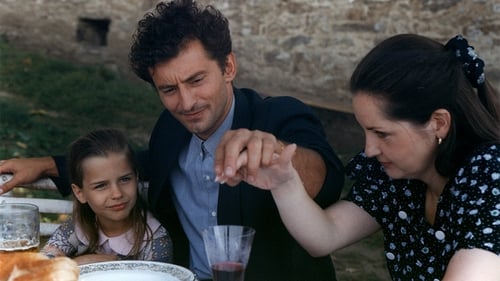
Story

Screenplay

Director
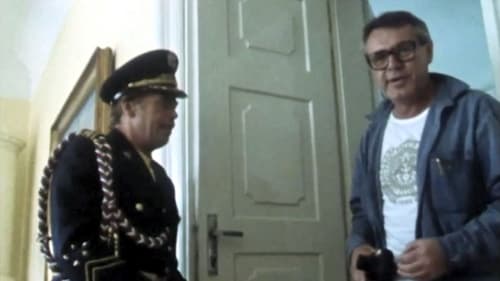
Screenplay
The first part of the block will be dedicated to the monograph Vojtěch Jasný: The Film Poet in Exile (2020) authored by the film historian Jiří Voráč. The monograph is centered on the legendary director’s life and career after his emigration to Western Europe and to the US after 1968, which have so far received little attention. In exile, Jasný established himself as a film director (he authored over thirty cinema and TV films and documentaries), stage director, photographer, and film studies lecturer. The first part will be followed by the screening of Jasný’s documentary Why Havel? co-produced by himself and Miloš Forman in Canada and Czechoslovakia in 1991. As remarkable as this reflection of the paradoxical transformation of a dissident into a president in the carnival-like atmosphere of the euphoric post-revolution period with the first question marks already appearing may be, it did not meet the expectations of the head of state.

Director
The first part of the block will be dedicated to the monograph Vojtěch Jasný: The Film Poet in Exile (2020) authored by the film historian Jiří Voráč. The monograph is centered on the legendary director’s life and career after his emigration to Western Europe and to the US after 1968, which have so far received little attention. In exile, Jasný established himself as a film director (he authored over thirty cinema and TV films and documentaries), stage director, photographer, and film studies lecturer. The first part will be followed by the screening of Jasný’s documentary Why Havel? co-produced by himself and Miloš Forman in Canada and Czechoslovakia in 1991. As remarkable as this reflection of the paradoxical transformation of a dissident into a president in the carnival-like atmosphere of the euphoric post-revolution period with the first question marks already appearing may be, it did not meet the expectations of the head of state.
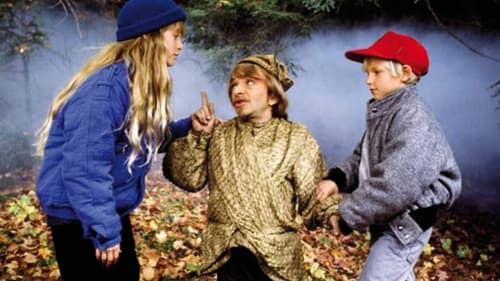
Director
Two children enter a fantasy kingdom and are confronted by evil forces.
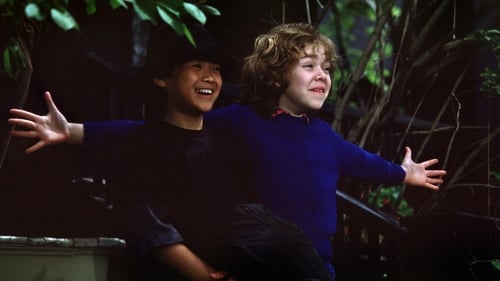
Writer
Peanut butter is the secret ingredient for magic potions made by two friendly ghosts. Eleven-year-old Michael loses all of his hair when he gets a fright and uses the potion to get his hair back, but too much peanut butter causes things to get a bit hairy.

Director

Director
As impressões de um cientista sobre o mundo em que vive, uma sociedade aparentemente perfeita mas opressora, e seus conflitos ao perceber as imperfeições dele, ao travar contato com um grupo opositor que luta contra o "Benfeitor", regente supremo da nação.

Director
The adaptation of a lesser known novel by Nobelist Ivo Andric, which describes the life of a spinster who was overwhelmed by a single passion: avarice.

Director

Writer
Rückkehr (Return) consists of two short films inspired by the director's youth:
"Die Rückkehr des alten Herrn" (The return of trhe old lord) is a nostalgic dive into the memories of an old man who entrusts his grandson with stories of his youth. "Mein seliger Onkel" (My blessed uncle) then tells the story of the boy and his adventurous uncle.
Both stories take place in a picturesque small town.

Director
Rückkehr (Return) consists of two short films inspired by the director's youth:
"Die Rückkehr des alten Herrn" (The return of trhe old lord) is a nostalgic dive into the memories of an old man who entrusts his grandson with stories of his youth. "Mein seliger Onkel" (My blessed uncle) then tells the story of the boy and his adventurous uncle.
Both stories take place in a picturesque small town.

Director
Reveals the life and current (1978) muses of Austrian conductor Herbert von Karajan.
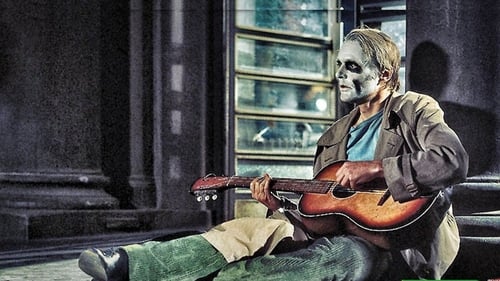
Screenplay
Based on the best-selling novel by Nobel-laureate Heinrich Böll, this drama is a passionate indictment of Catholicism. Hans Schnier (Helmut Griem) has earned his living as a clown, though he is in fact a very covert sort of social critic. After enduring a difficult childhood in Bonn during the Second World War, including his mother's fanatic Nazism, he is appalled to discover many of the people he knows and loves swept deeply into involvement in the Catholic Church.

Director
Based on the best-selling novel by Nobel-laureate Heinrich Böll, this drama is a passionate indictment of Catholicism. Hans Schnier (Helmut Griem) has earned his living as a clown, though he is in fact a very covert sort of social critic. After enduring a difficult childhood in Bonn during the Second World War, including his mother's fanatic Nazism, he is appalled to discover many of the people he knows and loves swept deeply into involvement in the Catholic Church.

Writer
The twelve year old Ivo has been living in Vienna with his family for three years. His father and brothers work at construction sites. Their Austrian neighbors despise the Yugoslav guest workers. Because the mother has to look after the sick grandmother at home in Croatia, Ivo runs the male household in Vienna alone. Solitude and insults from the locals make the child unhappy. And so Ivo decides on a rainy winter's day to return to his home village on his own.

Director
The twelve year old Ivo has been living in Vienna with his family for three years. His father and brothers work at construction sites. Their Austrian neighbors despise the Yugoslav guest workers. Because the mother has to look after the sick grandmother at home in Croatia, Ivo runs the male household in Vienna alone. Solitude and insults from the locals make the child unhappy. And so Ivo decides on a rainy winter's day to return to his home village on his own.

Director
A schizophrenic patient is is wasting away in a mental institution, until a young doctor encourages him to write poetry. The resulting masterpieces are however not able to stop the man from suicide.

Writer
A quiet, unassuming man sentenced to a long term in a maximum-security prison uses his time to study and begins to write cryptic short stories.

Director
A quiet, unassuming man sentenced to a long term in a maximum-security prison uses his time to study and begins to write cryptic short stories.

Adaptation
A psychological and existential study of a prisoner charged with guarding an isolated lighthouse. If he makes it through two years, the remainder of his sentence for manslaughter in a bar brawl will be pardoned. Nobody before managed to cope with the solitude. One day, a rat makes its way to the island. The sea and the island, the man and the rat, friendship and vendetta.

Director
A psychological and existential study of a prisoner charged with guarding an isolated lighthouse. If he makes it through two years, the remainder of his sentence for manslaughter in a bar brawl will be pardoned. Nobody before managed to cope with the solitude. One day, a rat makes its way to the island. The sea and the island, the man and the rat, friendship and vendetta.

Director

Story

Screenplay

Director
An elderly lady has a trauma and simply must celebrate Christmas every day of the year, to the dismay of her family and relatives.

Screenplay
Essay film from Czech director Vojtech Jasný on his home country.

Story
Essay film from Czech director Vojtech Jasný on his home country.

Director
Essay film from Czech director Vojtech Jasný on his home country.
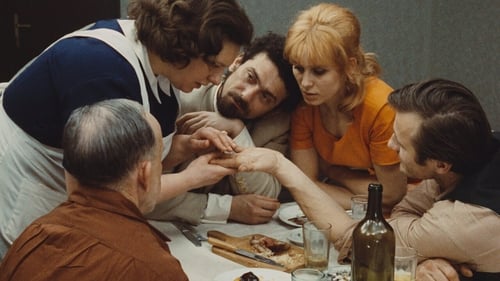
Story
The title "All My Good Countrymen" is not without irony as this epic tale of Czech village life from shortly after the end of the Second World War concentrates on the activities of a group of friends who are not beyond reproach in siding with a politically corrupt regime for material advancement. Are these the "good countrymen" of the title or does it refer to the rest of the village who scorn these petty authority figure with silent contempt?

Director
The title "All My Good Countrymen" is not without irony as this epic tale of Czech village life from shortly after the end of the Second World War concentrates on the activities of a group of friends who are not beyond reproach in siding with a politically corrupt regime for material advancement. Are these the "good countrymen" of the title or does it refer to the rest of the village who scorn these petty authority figure with silent contempt?

Screenplay
The title "All My Good Countrymen" is not without irony as this epic tale of Czech village life from shortly after the end of the Second World War concentrates on the activities of a group of friends who are not beyond reproach in siding with a politically corrupt regime for material advancement. Are these the "good countrymen" of the title or does it refer to the rest of the village who scorn these petty authority figure with silent contempt?

Story

Screenplay
This three-part Austrian/Czech comedy stretches the boundaries of what is considered to be humorous. Part one finds a silent film actor upset because of a rival actor's attention to the former's wife. When he kills his rival, it is only when he is strapped to the electric chair that he realizes that this is his last live scene. The second episode has the wife of an elderly British nobleman having an affair with the young gamekeeper of their estate. Part three finds a peasant woman taking a lover when her husband goes off to fight the war.

Director
This three-part Austrian/Czech comedy stretches the boundaries of what is considered to be humorous. Part one finds a silent film actor upset because of a rival actor's attention to the former's wife. When he kills his rival, it is only when he is strapped to the electric chair that he realizes that this is his last live scene. The second episode has the wife of an elderly British nobleman having an affair with the young gamekeeper of their estate. Part three finds a peasant woman taking a lover when her husband goes off to fight the war.

Director
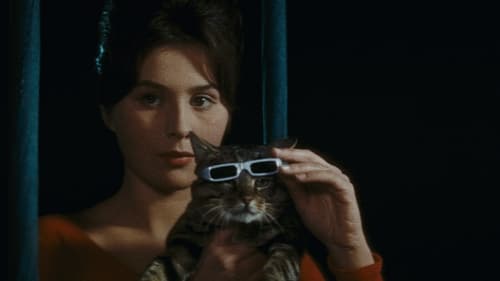
Screenplay
Fantasia, beleza e imaginação em uma bela alegoria poética. Os moradores de um vilarejo assistem ao espetáculo de um mágico e seu gato, que usa óculos e, quando os tira, tem o poder de mudar a cor das pessoas à sua volta de acordo com o caráter delas. O fato assusta os adultos do lugar, que vêem o animal como uma ameaça, mas, ao mesmo tempo, atrai todas as crianças da vila.

Story
Fantasia, beleza e imaginação em uma bela alegoria poética. Os moradores de um vilarejo assistem ao espetáculo de um mágico e seu gato, que usa óculos e, quando os tira, tem o poder de mudar a cor das pessoas à sua volta de acordo com o caráter delas. O fato assusta os adultos do lugar, que vêem o animal como uma ameaça, mas, ao mesmo tempo, atrai todas as crianças da vila.

Director
Fantasia, beleza e imaginação em uma bela alegoria poética. Os moradores de um vilarejo assistem ao espetáculo de um mágico e seu gato, que usa óculos e, quando os tira, tem o poder de mudar a cor das pessoas à sua volta de acordo com o caráter delas. O fato assusta os adultos do lugar, que vêem o animal como uma ameaça, mas, ao mesmo tempo, atrai todas as crianças da vila.

Director
Farmers get away from their arguments by embarking on a religious pilgrimage, enjoy a picnic en route, and on their return decide to form a cooperative.

Director
Telling the prisoners of a death camp. Boxer Tony Majer, who got into a concentration camp for a fight with the Gestapo, remembers the murderous work in quarries, on the cruel torture of the Nazis and prison solidarity that helped him survive.
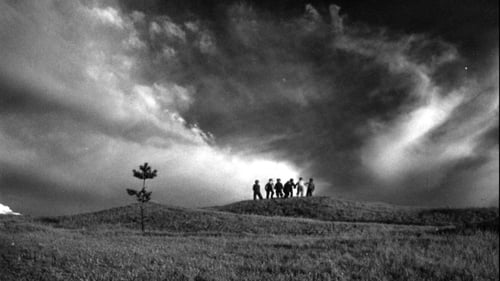
Story
A poignant overview of how short life can be, this interesting drama from Czech director Vojetch Jasny is divided into four separate segments. In the first skit, a young child's impressions are observed as his newborn baby sister becomes a part of the family. In the second, a young woman falls in love for the first time one summer, and in the third, a tough, older peasant woman battles against the farming cooperatives. Finally, in the last segment, everything comes full circle as a woman who is about to become a grandmother dies while her daughter-in-law has not yet given birth.

Screenplay
A poignant overview of how short life can be, this interesting drama from Czech director Vojetch Jasny is divided into four separate segments. In the first skit, a young child's impressions are observed as his newborn baby sister becomes a part of the family. In the second, a young woman falls in love for the first time one summer, and in the third, a tough, older peasant woman battles against the farming cooperatives. Finally, in the last segment, everything comes full circle as a woman who is about to become a grandmother dies while her daughter-in-law has not yet given birth.

Director
A poignant overview of how short life can be, this interesting drama from Czech director Vojetch Jasny is divided into four separate segments. In the first skit, a young child's impressions are observed as his newborn baby sister becomes a part of the family. In the second, a young woman falls in love for the first time one summer, and in the third, a tough, older peasant woman battles against the farming cooperatives. Finally, in the last segment, everything comes full circle as a woman who is about to become a grandmother dies while her daughter-in-law has not yet given birth.

Screenplay

Director

Screenplay
A military film of marital infidelity in which furloughs pose danger not only to the army but also to a soldier's family.

Director
A military film of marital infidelity in which furloughs pose danger not only to the army but also to a soldier's family.

Director
Everything Ends Tonight is a Czech movie.

Camera Operator

Director

Camera Operator

Director

Camera Operator

Director

Screenplay

Director of Photography

Director

Screenplay

Idea

Screenplay

Idea

Director

Director of Photography

Screenplay

Man with a Gramophone

Editor

Director

Director of Photography

Screenplay

Idea

Director














